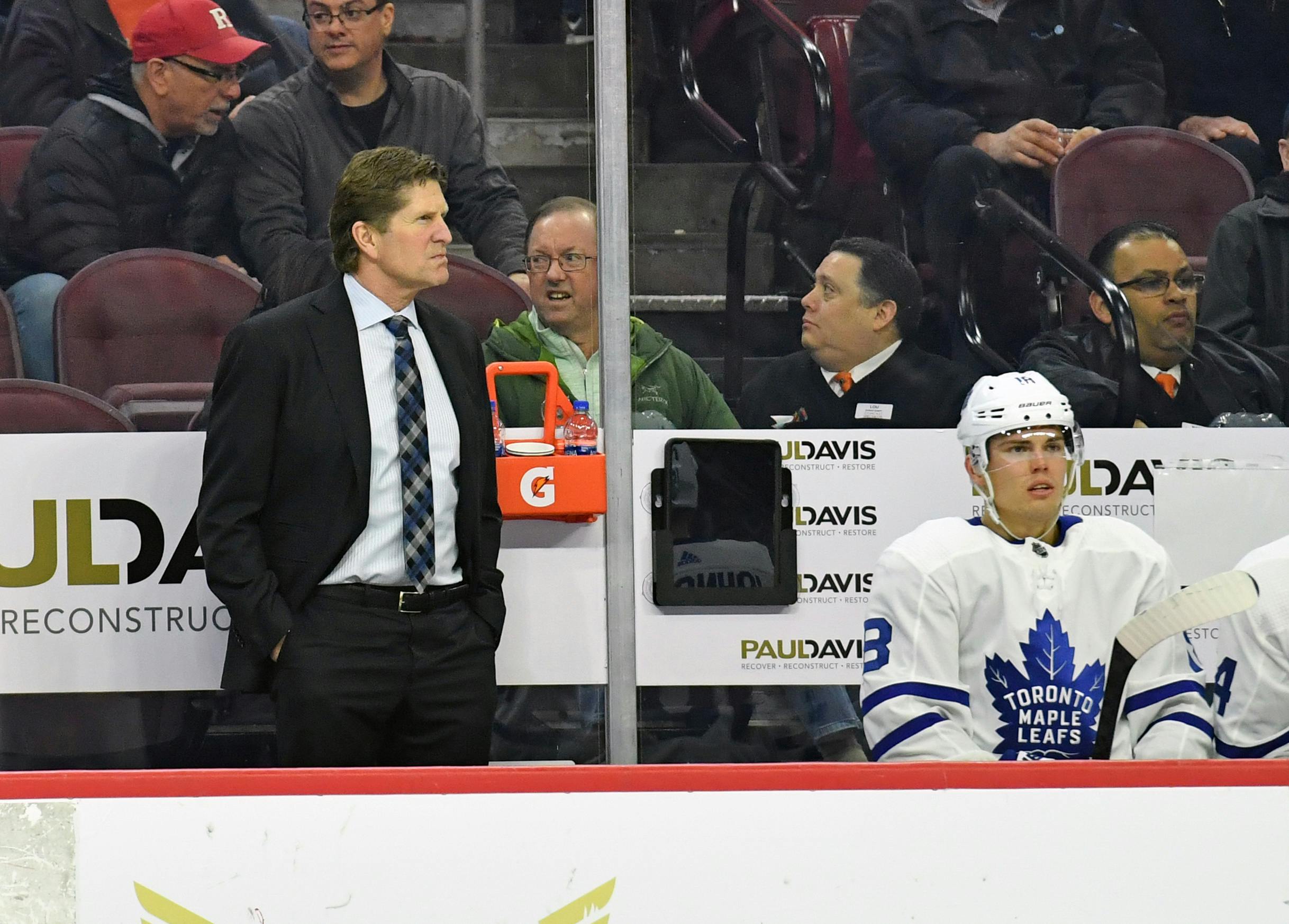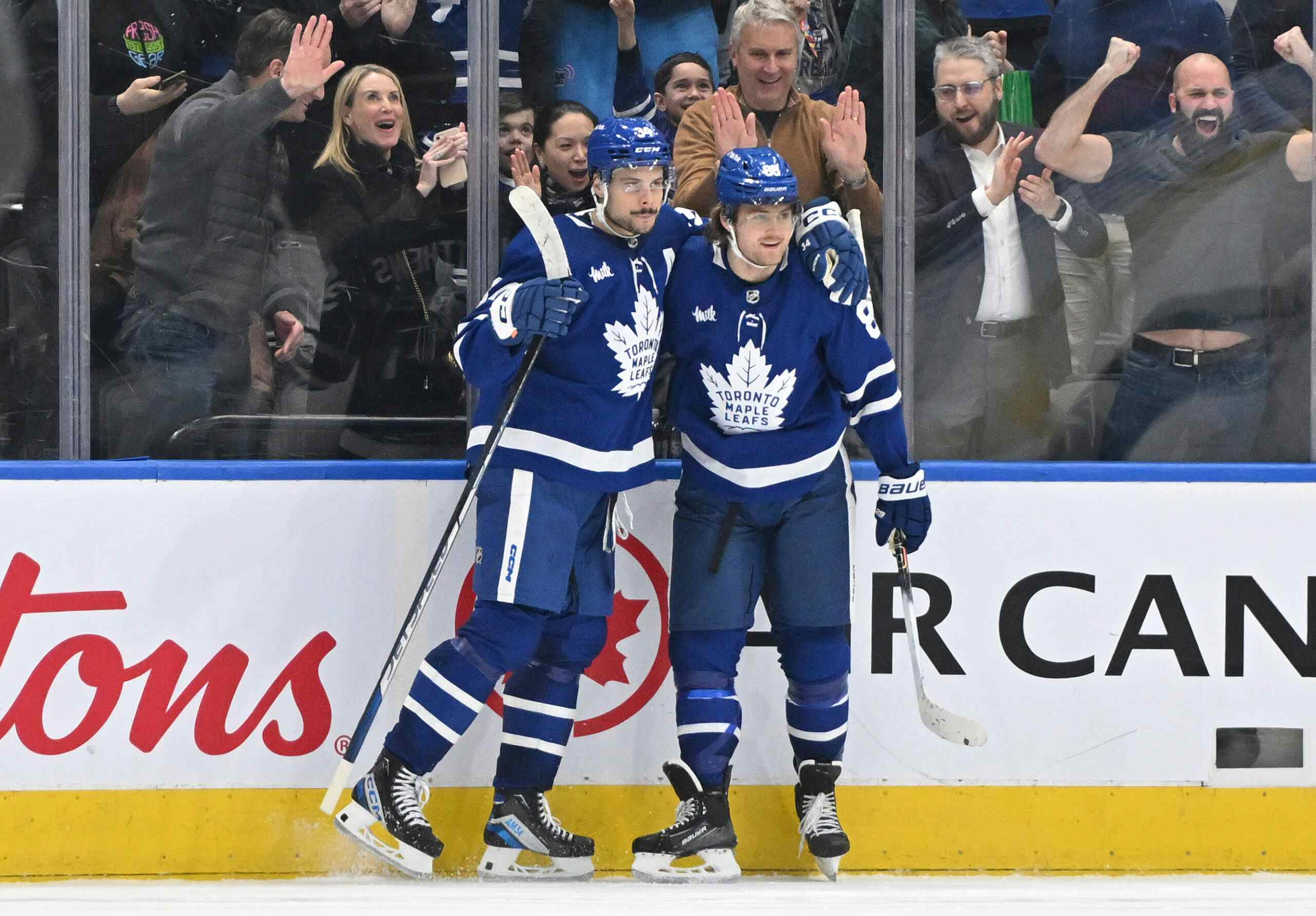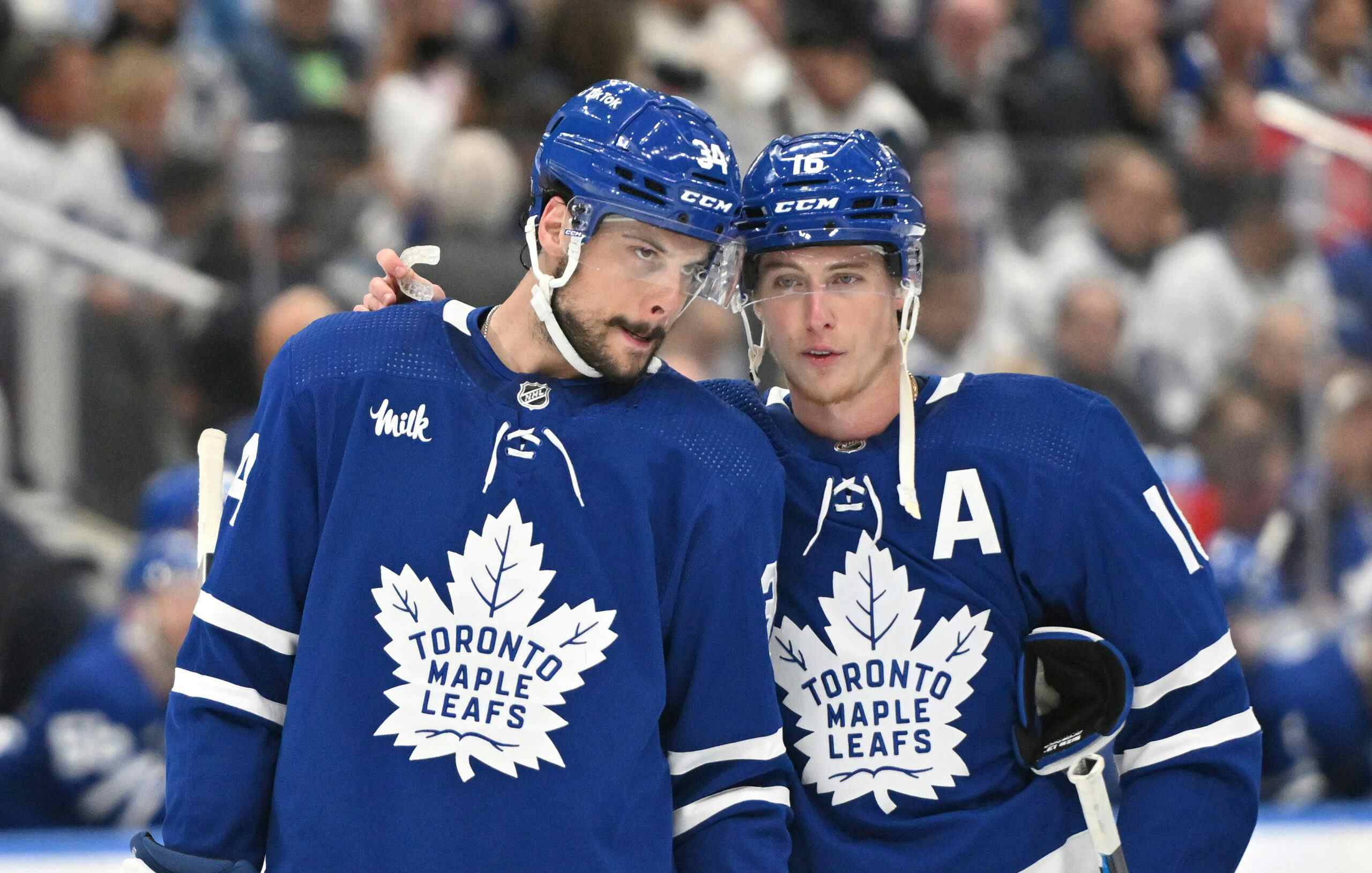Preseason Overreaction: Has Mike Babcock Really Changed?

“Harpur did his job for us. I was impressed with him”
Those were Mike Babcock‘s words, used to describe the performance of Ben Harpur in what was the defenceman’s first game as a Maple Leaf. In a shocking twist, those who had just watched the exact same contest as Babock declined to share in the sentiment. They had every reason not to, frankly.
Even with the caveat of the preseason, Harpur appeared every bit as lost in a Leafs uniform on Wednesday as he did in the 103 games he previously spent as a Senator. Those blemishes weren’t exactly subtle, either. In fact, they were on full display.
Harpur’s litany of red flags — the flat-footedness, the inability to complete an outlet pass, the repeated lapses in net-front coverage, etc. — have now successfully followed him from Ottawa to Toronto. In roughly 11 minutes of ice time, Harpur looked less like an NHL calibre defenceman and more in line with someone struggling to keep up with the modern game — a battle of which Harpur assuredly is on the losing end.
Nevertheless, Babcock was impressed. Enough to publically offer his praise, even. The highest-paid coach in the sport enjoyed a front-row seat to, among other sequences, this:

And this:

And perceived them as a defenceman merely doing “his job”.
Harpur also mixed in a fight shortly after the Senators increased their lead to 2-0 — a result of him getting walked by Connor Brown along the boards, if the knife hadn’t already been twisted enough — effectively negating Toronto’s offensive zone possession and, by drawing an additional instigator penalty, rendering his team shorthanded heading into the first intermission in the process.
Again; Mike Babcock was impressed by this. To him, Harpur was doing his job.
Evolution
In normal circumstances, both the post-game quotes about, and performance from a new player in his first game — and a preseason one, at that — would mean very little. But these aren’t normal circumstances.
The Maple Leafs enter the 2019-20 season holding what is undoubtedly their best shot at a Stanley Cup in recent memory. Toronto’s window of contention is now overtly defined; propped open for the five years Auston Matthews remains under contract. After that, all bets are off.
So, whereas most franchises would simply chalk a debut like Harpur’s up to rust or jitters, the Maple Leafs do not have that luxury. Their clock is ticking. Fast.
Two consecutive first-round defeats at the hands of the Boston Bruins is enough to force anyone to confront reality — Toronto’s being that the inability (or refusal) of Babcock to alter his coaching methods has held this team back. And while Kyle Dubas did, in fact, re-affirm Babcock as “his guy” shortly after Game Seven Part Two, that vote of confidence arrived with the expectation of change.
Whether it was spoken or not, the message was clear: Babcock needed to evolve.
What does “evolve” mean, though? It’s an important thing to quantify before laying down judgement. For Babcock, “evolve” means giving his best players the most minutes; it means utilizing the Leafs’ staggering skill to its fullest extent; it means building a roster complicit with the modern NHL.
When looking at the results from last night, however, Babcock seems to have checked a number of those boxes.
Harpur logged a mere 11:42 in ice time while Matthews and William Nylander finished their nights with 22:50 and 21:33, respectively. Rookies like Rasmus Sandin and Timothy Liljegren were given big enough stages to prove their worth on when, in years past, their inexperience may have relegated them to spot duty. Even the in-game adjustments seemed to align with what the play dictated. Despite starting out together, the Harpur – Sandin pairing was abandoned early on when it became glaringly apparent they never should have been a pairing in the first place.
These are all good signs, the kind that perhaps hint at a coach with a new outlook.
And then you hear him talk.
Public Speaking
One of Babcock’s foremost critiques centres around his equally inexplicable and inflammatory quotes in the press.
Whether it was spoiling the Jake Muzzin party by bemoaning the defender’s handedness with assertions that he’ll have to “make it work”, or choosing to punctuate Nic Petan‘s homecoming in Vancouver by pointing to him as the reason the Leafs couldn’t ice a fourth line, or taking veiled shots at Toronto’s supposed “depth” despite the team having just added Muzzin and John Tavares at no immediate cost to their roster, Babcock’s media availabilities have begun to do more harm than good.
That’s not exactly a welcome trait from a coach.
So, this is what makes Babcock’s praise of Harpur so troubling, particularly when recognizing that stubbornness is his most crippling vice. Babcock loves the players he loves, hates the players he hates, and views either category as a life sentence. Those who have fallen into the former, unfortunately, tend to be the least deserving.
The list of “Babcock guys” is littered with Roman Polak, Matt Hunwick, Nikita Zaitsev, Ron Hainsey, Frederik Gauthier, and Patrick Marleau, etc, etc. Can any of those players be pointed to as the sole issue at hand? Of course not. But throughout their respective tenures in Toronto (Marleau being the exception, as he only truly fell off towards the end of his final season), each player was considered to be among the worst on their given team.
And yet, Babcock kept them around. He went so far as to heap them with responsibility, even, and repeatedly refused to acknowledge that his judgement might have been a tad off. It hurt the team. Now, it seems destined to happen again.
Those fuzzy feelings towards Harpur wouldn’t have hit the fanbase as hard were it not for their timing. A mere 24 hours prior, Babcock stepped before the media to address the Leafs’ 3-1 loss to the Senators, a game which many believed had just featured an encouraging debut by Jason Spezza.
Babcock, on the other hand, had a different opinion:
From one night to the next, Babcock made the conscious choice to use his public platform to dampen the performance of one of his most encouraging players before turning around to praise one of his worst.
Spezza’s debut was more than encouraging, too. Pencilled in at a position Babcock himself has routinely failed to address over the past three years, the 37-year-old demonstrated the requisite offensive flair, faceoff acumen, and overall awareness of a modern 4C. Spezza even fits Babcock’s preferred archetype, too; a tall, veteran, right-handed pivot who’s a monster on the draw.
That still doesn’t appear to be enough, though. At least, not to this coach.
Does Context Matter?
Now, a common retort whenever criticisms of Babcock’s public musings arise is that they have, in fact, been taken out of context. This can even be correct, on occasion. But his comments thus far can be taken at face value.
Babcock didn’t compliment Harpur by being prompted to comment on him specifically. Rather, the question Babcock was asked, posed by the god-like Paul Hendrick, was “What did you like about your team once they got their legs going?”, to which he lauded Harpur on his own accord.
Babcock didn’t have to. But, he did. And there’s a reason for that.
A similar notion applies to Babcock’s uneasy comments on Spezza. The answer he gave wasn’t in response to “What do you think of Spezza’s interest level?”. A reporter simply proposed “You used Spezza a lot”, and Babcock took it from there, focusing on the concept of interest for what was then the second day in a row.
This is not a case of selective hearing. Babcock’s own words, taken as they are, are responsible for this current sense of unease. Going off the words of the man himself, not much has changed. Even when Dubas made a concerted effort over the summer to strip his coach of his toys, we have now seen, two games in, that Babcock may have found new and similarly dangerous ones to play with already.
Again; this is the preseason. Taking anything as gospel from the games at hand would be foolish. But Babcock’s performance, and the standard to which it is judged, comes burdened by his previous three years of precedent (as a contender) that remained maddeningly stagnant. With similar patterns now bleeding into the fourth, it’s fair to wonder: “Has he really changed?”.
The Leafs might not be in a position to sit back and find out.
Recent articles from Mike Stephens





